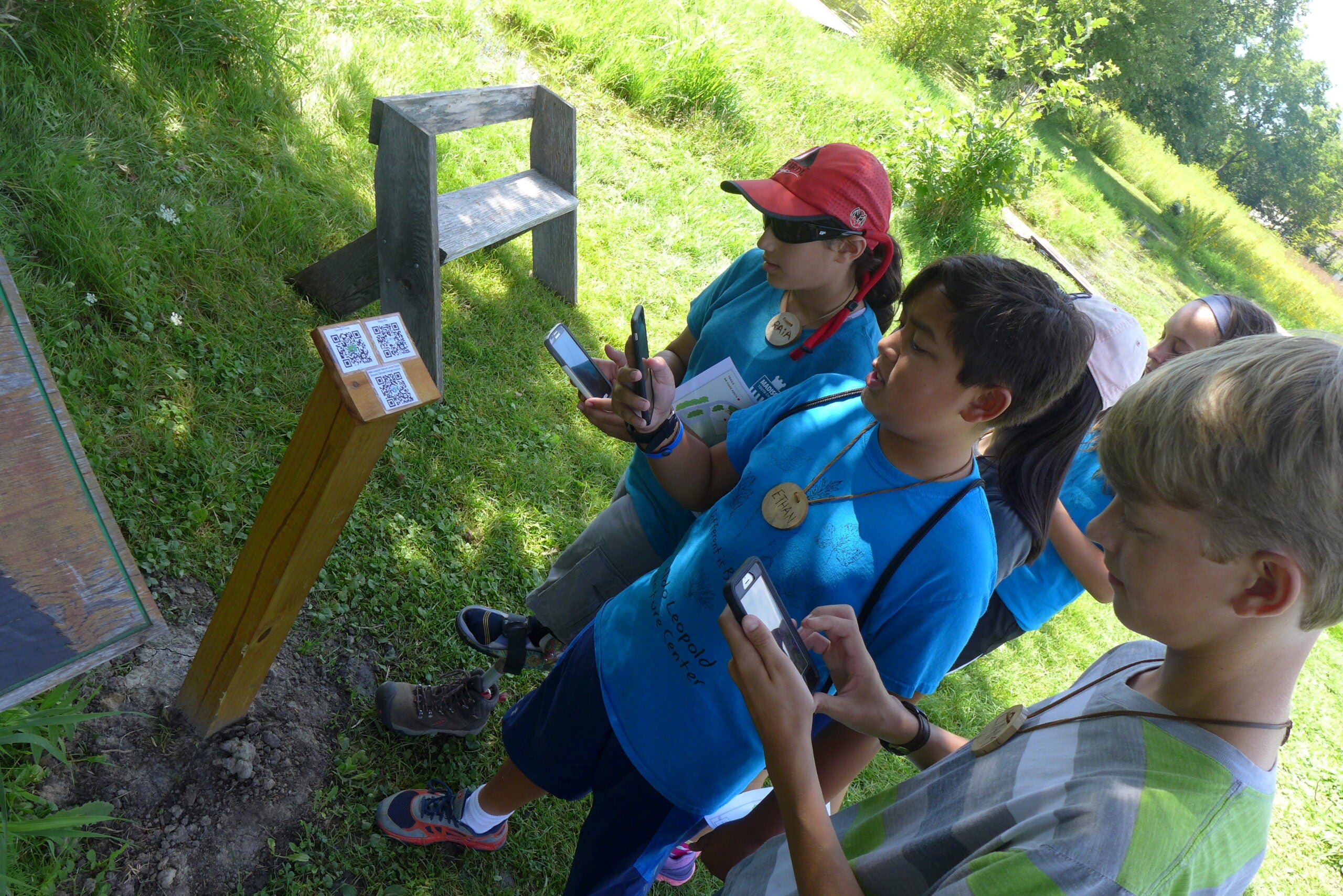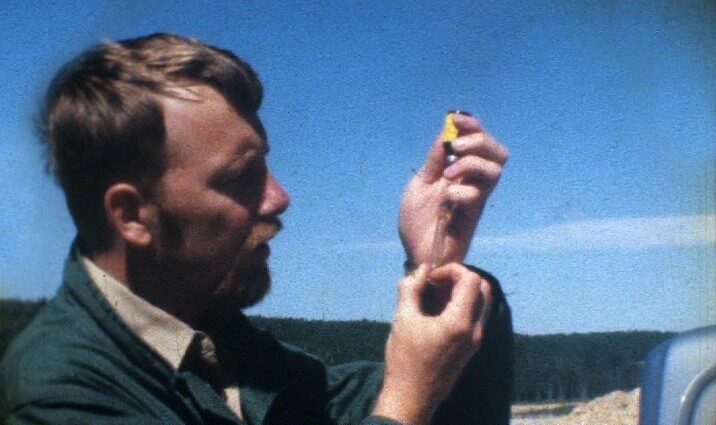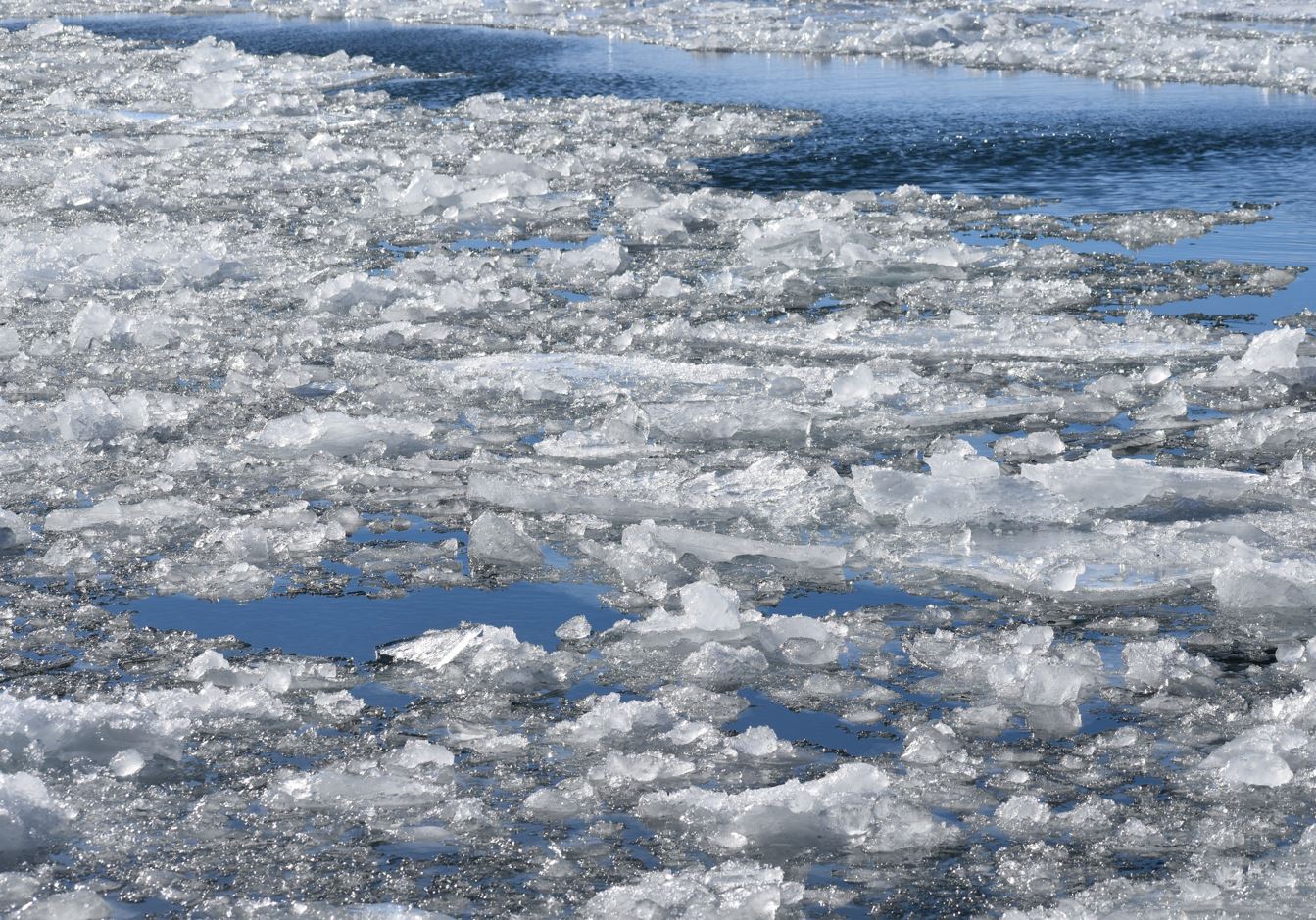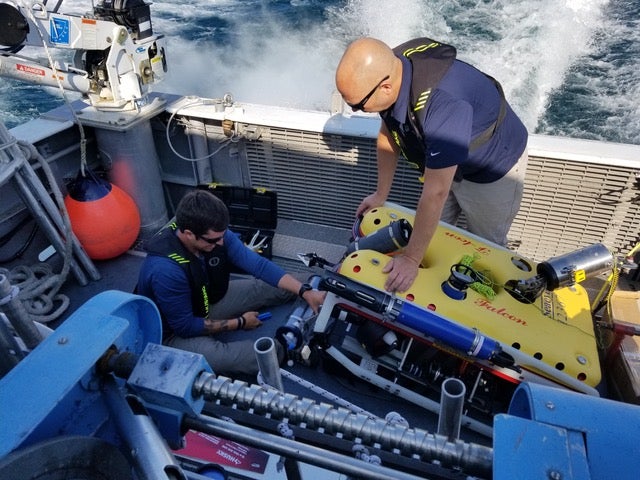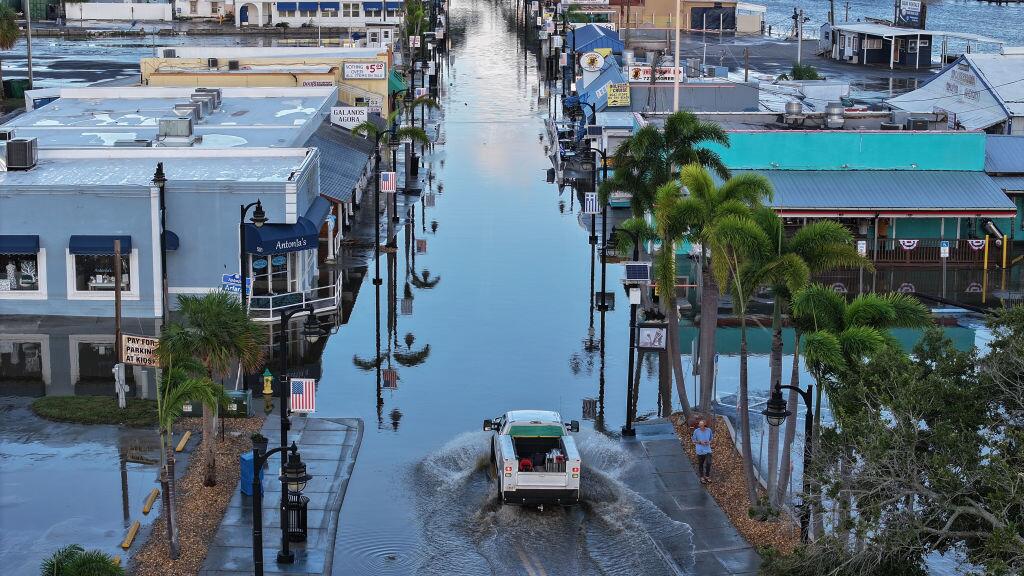The Aldo Leopold Nature Center in Monona is launching a self-guided tour that aims to help visitors understand how climate change is happening in their own backyard. A group of junior high students took the first tour this week.
On the sprawling 21-acre prairie, they huddle on a dock squinting at their smartphones and call out what pops up on their phones — cattails, painted turtle and tamarack tree.
The tour is called the “Digital Docent: Climate Change Impacts.” The students stop at a signpost and aim their smartphones at a QR code: a square, digitally readable symbol. About 20 QR codes line the trail. Up pops information about a particular plant or animal, and how climate change is impacting it.
Stay informed on the latest news
Sign up for WPR’s email newsletter.
“It says for the painted turtle the gender of the offspring is determined by the air temperature around the egg,” eighth grader Raia Ottenheimer reads from her phone. “I guess if our planet stays on track for the 3 to 12 degrees Fahrenheit increase, wow, that will greatly impact the ecosystems.”
Ottenheimer draws a connection by taking a big picture fact she’s learned about climate change and applying it to a turtle in Monona.
University of Wisconsin-Madison geology major Ethan Heyrman spent the summer creating the “Digital Docent” on a fellowship through the Morgridge Center for Public Service.
“People have a hard time understanding that it happens to species in their backyard,” Heyrman said. “So, we built this tour to try to help people bridge that gap and understand that it is happening to the white-tailed deer. It is happening to the tree species here in Madison, in Wisconsin and in the Midwest in general.”
Heyrman’s trail entries draw on the latest climate change data and how local species are impacted. But the tour doesn’t use scare tactics, according to Aldo Leopold Nature Center Exhibits Director Brenna Holzhauer.
“It’s definitely not a preachy, climate change doomsday scenario,” Holzhauer said. “It’s just talking about these things that are happening around us, and starting to think about the bigger picture and connecting the dots a little bit.”
Holzhauer said the digital tour stays true to Aldo Leopold’s philosophy — that everything’s interconnected and it’s important to document subtle changes in things like temperature and bloom times. That message has always been on display in the visitor’s center.
But Heyrman hopes visitors are receptive to using their smartphones on the trails to deepen their understanding.
“Normally, people want to be outside and they want to be away from technology,” he said. “They just want to be by themselves outdoors. It’s kind of walking in the dark, bringing it outside, and giving people access to it when they might not even like it.”
The nature center plans to update the digital tour so it stays current with ever changing climate data. That, Holzhauer believes, is an advantage of having the material on the Internet rather than on a panel display stuck in the ground.
Heyrman’s summer project was supervised by professor Jack Williams who directs the Center for Climatic Research at the University of Wisconsin Nelson Institute. Williams thinks the tour will prompt visitors to question what’s happening around them.
“The world has always been changing and species around us have always been able to adapt to these changes,” Williams said. “We are now, ourselves, changing the world around us through greenhouse gas emissions, but at some larger context, the world is always changing and we should appreciate that we have this changing, dynamic, beautiful world.”
The students, called “junior naturalists,” hike along the trail flanked by towering wildflowers and prairie brush. Eighth grader Ethan Meulemans skirts around thorny bushes bending over the path. He stops at a pond that’s overtopped its banks.
“Three years ago, we had a serious drought and the pond did not exist,” Meulemans said, who has been involved in Aldo Leopold Nature Center activities for six years. “Now, it’s overflowing and taking over the prairie. So the fact that people think it (climate change) doesn’t exist is just silly.”
It’s observations like this one that the nature center wants visitors to walk away with — upholding Aldo Leopold’s vision.
Wisconsin Public Radio, © Copyright 2025, Board of Regents of the University of Wisconsin System and Wisconsin Educational Communications Board.
